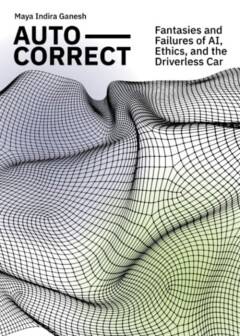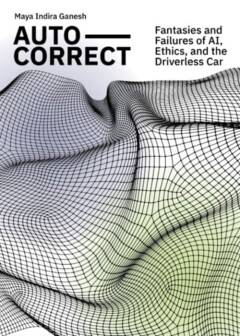
- Afhalen na 1 uur in een winkel met voorraad
- Gratis thuislevering in België vanaf € 30
- Ruim aanbod met 7 miljoen producten
- Afhalen na 1 uur in een winkel met voorraad
- Gratis thuislevering in België vanaf € 30
- Ruim aanbod met 7 miljoen producten
Zoeken
Auto-Correct
The Fantasies and Failures of AI, Ethics, and the Driverless Car
Maya Indira Ganesh, Nishant Shah
€ 24,95
+ 49 punten
Omschrijving
The “trolley problem” remains a useful exercise in drawing out the differences between utilitarian and deontological approaches to ethics in analytic philosophy. However, the thought experiment also determined imagining what AI-infused artefacts should be capable of, suggesting that ethical decision-making becomes a data-driven enterprise rather than a human, social, or individualised practice. Maya Indira Ganesh tracks the language, materiality, and culture of epistemic tools that establish safety and automobility as problems to be solved by the driverless car, examining outputs of AI systems versus what constitutes our social and technological presents and futures.
Specificaties
Betrokkenen
- Auteur(s):
- Uitgeverij:
Inhoud
- Aantal bladzijden:
- 224
- Taal:
- Engels
- Reeks:
- Reeksnummer:
- nr. 38
Eigenschappen
- Productcode (EAN):
- 9789491444814
- Verschijningsdatum:
- 10/04/2025
- Uitvoering:
- Paperback

Alleen bij Standaard Boekhandel
+ 49 punten op je klantenkaart van Standaard Boekhandel
Beoordelingen
We publiceren alleen reviews die voldoen aan de voorwaarden voor reviews. Bekijk onze voorwaarden voor reviews.











